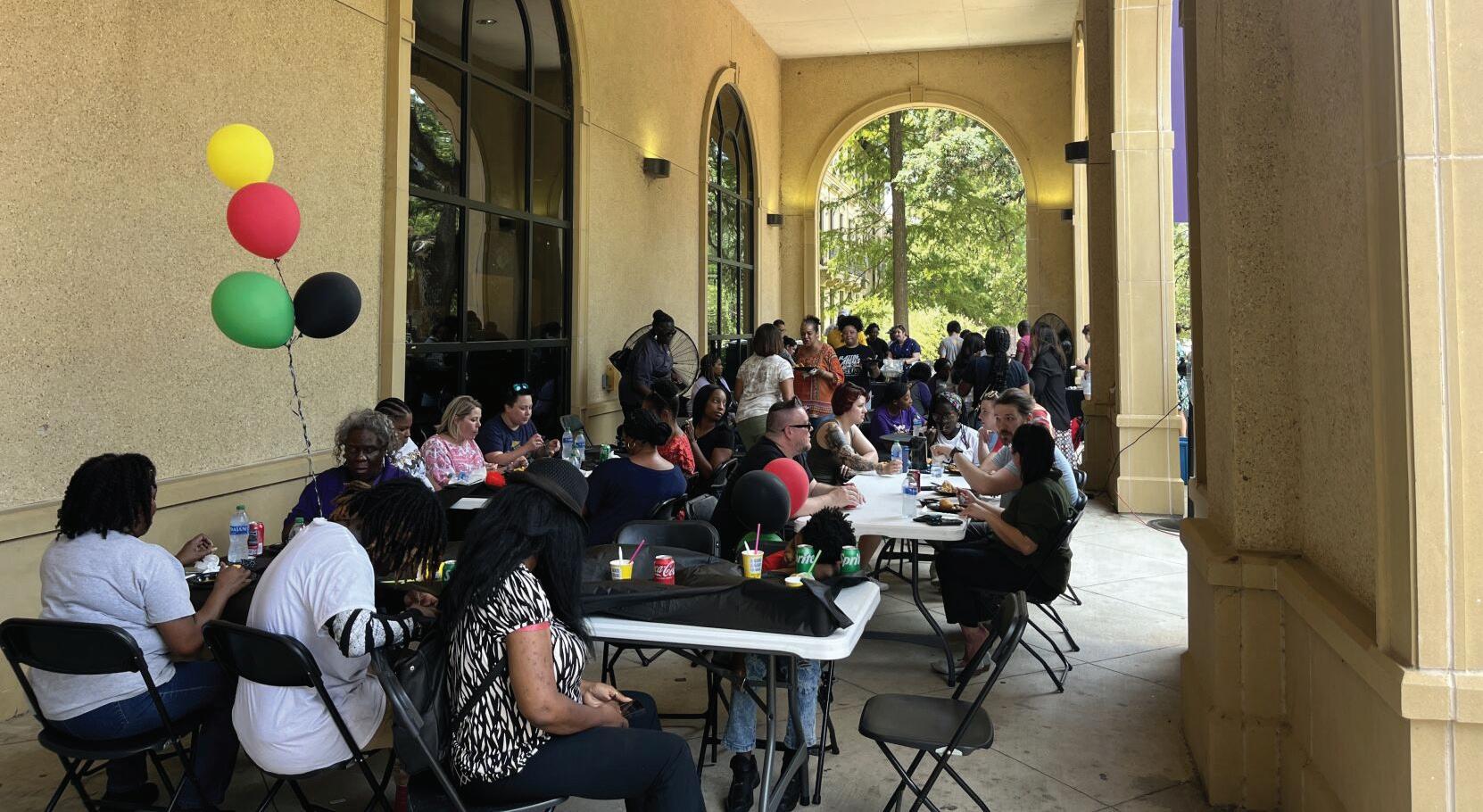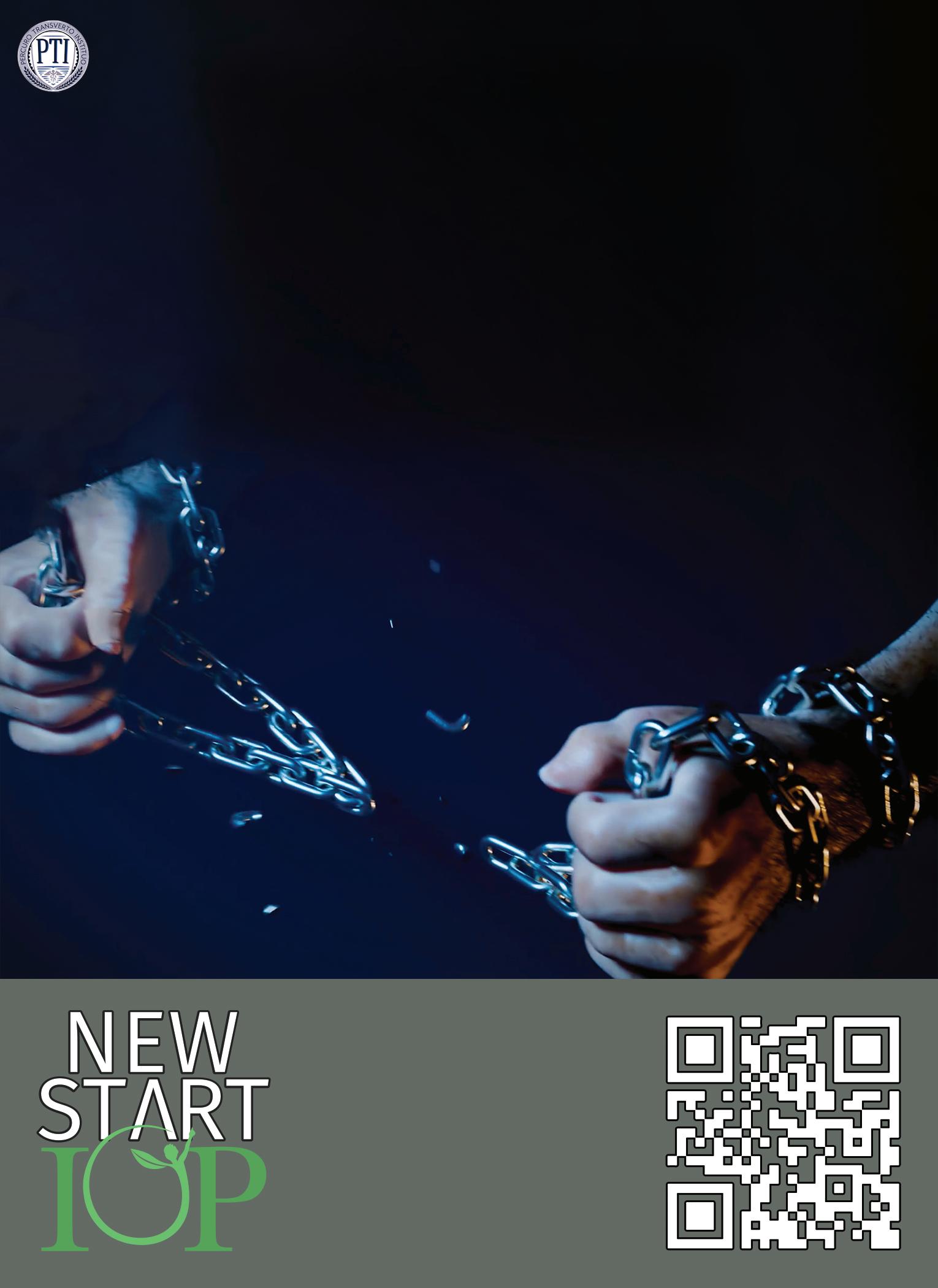
4 minute read
Juneteenth celebrated with history, food and music by AACC
from The Reveille 6-26-23
by Reveille
BY COLIN FALCON @nestingnests
The African American Cultural Center hosted an openinvite Juneteenth celebration complete with a live DJ, food provided by LSU dining and an address from both the cultural center’s director and the Office of Diversity and Inclusion’s executive associate vice president on Friday.
Advertisement
The event began at noon, but mashups of Beyonce songs could already be heard coming from the plaza in front of the campus Barnes & Noble 20 minutes before the first guests arrived, setting the scene for the celebration.
The AACC estimated 215 people attended the event, not counting those that neglected to sign in.
Later in the afternoon, attendees broke from conversing and enjoying the food to listen to the AACC’s Director, Percy Jackson, talk about the history of the holiday.
He explained how on June 19, 1865, Union General Gordon Granger landed in Galveston, Texas and officially announced that the Civil War was over, and all slaves were free. The Emancipation Proclamation had been given two years prior, but didn’t have any tangible effect on southern states due to the lingering presence of confederate rebels. Juneteenth or “Freedom Day” was the beginning of real freedom for African Americans, Jackson said.
“The Juneteenth celebration
MANSHIP, from page 3 matters specified in PS-36, all faculty voting shall be done in person or virtually. There shall be no proxy voting.”
Grimm rebutted this and “claimed that such absentee voting was widely known and was practiced extensively in the past,” the adjudication report read.
The committee rejected that claim. “The committee heard from several members who were not aware of this non-

JUNETEENTH, from page 3 was a time for reassuring each other, for praying and for gathering with remaining family members,” Jackson said. “That is why this holiday is very important for our culture and very important for us as a people, so we want to make sure we celebrate it for many many years to come.”
Jackson then handed the microphone to Jan Barker-Alexander, the Office of Diversity and Inclusion’s executive associate vice president, who asked “How many of you all learned about Juneteenth in school?”
Only one hand in the crowd went up. Barker-Alexander then emphasized the importance of education, calling the crowd to procedural voting practice, and at least one such faculty – who arrived about fifteen minutes late to the Zoom meeting – was denied a vote,” the report said.
The committee also couldn’t find any instance of absentee votes being used in the past for policy matters. And even if such votes had been allowed in the past, the committee reported, those would be in violation of the college’s policy, too.
Ultimately, the adjudication committee recommended in April that the college redo its teach about the holiday in their homes and with their friends.
“There is a purpose to us coming together today, which is to acknowledge that this is a central, key part of American History,” Barker-Alexander said.
Rounds of applause and supportive shouts from the crowd followed the speeches. Shortly after the clamor died down, the music returned and a three-person line dance to the Cupid Shuffle broke out, quickly becoming a near 30-person dance.
Iriel Nunnery, a graduate assistant at the AACC and one of the leading event organizers, said striking a balance between having fun and celebrating progress while still vote and the process that preceded it—a charge it did not issue lightly. understanding the significance of African American history in America was a key goal for the event.
“The [Faculty Senate Adjudication Committee] determined that such a recommendation could only be made if there were serious, recurring divergences from procedures when the vote was conducted and/ or during the events leading up to that vote,” the committee wrote.
“The vote clearly did violate Manship’s own policy on voting,” Shihadeh said.
“I hope people gain the importance of the holiday. That they know this is something we want to celebrate. We want to have a good time and enjoy the fact that we’ve progressed so much,” Nunnery said.
She also stressed the importance of the LSU community in making the event possible. The university’s human resources department played a massive role in spreading the word and recruiting volunteers, the athletics department donated a couple boxes of merchandise for the event’s raffle and LSU dining donated all the food, Nunnery said.
Grimm declined to be interviewed for this story and offered a statement instead.
“I respect the Adjudication Committee’s decision, though I was disappointed more context was not provided in the report,” he wrote in an email.
“It’s unfortunate that faculty votes were suppressed due to an interpretation of a policy and procedure that have been in place for years, but I look forward to voting in favor of more inclusive admission policies as a faculty member.”
“All of our close sponsors have been amazing. Just talking to them and coordinating with them and them just genuinely giving their time and investing in our event has been amazing,” Nunnery said.

Many attendees said the AACC succeeded in putting on a great celebration.
“I’m just happy to have been around so many people who also support Juneteenth, especially since it’s not really taught,” said 23-year-old LSU graduate Calvin Bridges as he left the event, still dancing to the music. “I’m leaving here happy.”
Carianne Asberry, a 21-yearold interdisciplinary studies senior and former student government member, said she ap - preciates the progression of Juneteenth at LSU more than anything. During her time as a member of the Black Caucus in student government, Asberry said she helped fight to get the holiday recognized by the university.
Grimm did not respond to follow-up questions asking for further elaboration on faculty votes being suppressed or the committee reporting it could not find instances of absentee votes being used for policy matters.
It’s a tense end to Grimm’s term. He became interim dean after Martin Johnson died in September 2020, and he will be replaced in July by permanent dean Kimberly Bissell, an administrator from the University of Alabama.
“Seeing it go from not even on the school’s calendar to this big community event is great,” she said.
Asberry felt lucky to have even attended. She said she wasn’t aware the celebration was happening but happened to hear music while walking near the Union and decided to investigate. She said she was pleased with what she found.
“If you just follow the music on this campus,” Asberry said, “You’ll always find something.”









